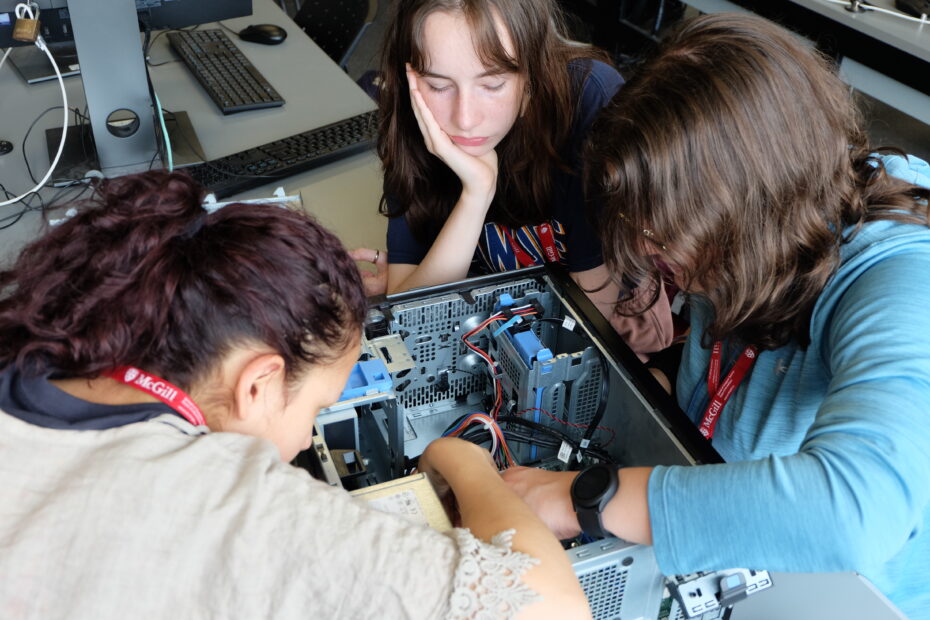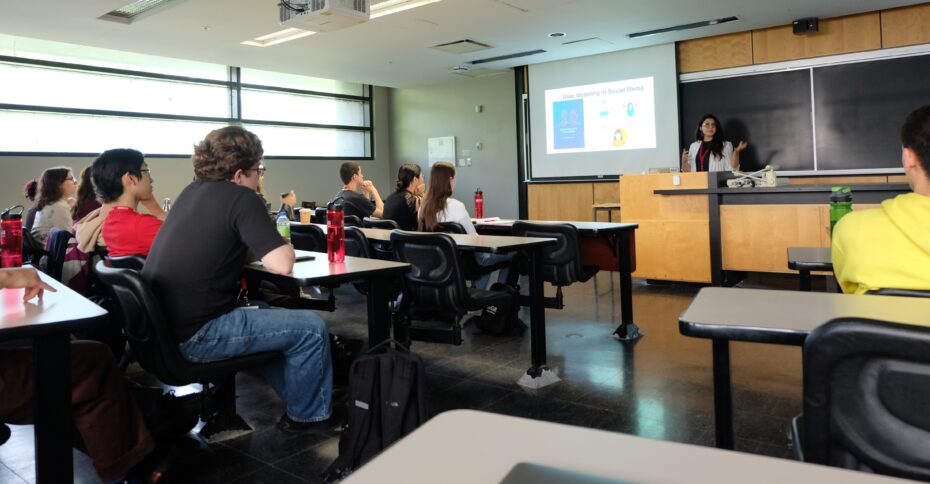
After a hiatus of about a decade, the McGill Computer Science Summer Camp once again welcomed students from Montreal high schools and CEGEPs to the downtown campus this summer.
The four packed days of talks, hands-on activities and coding sessions were all intended to strengthen students’ interests in coding and coding competitions, and to contribute to the development of computer science talent in Quebec.
The 30 participants dissected old computers, learned about ethical AI and touched on a diverse selection of coding topics. Campers capped off the week by testing their knowledge in a friendly but intense competition, complete with its own award ceremony.
Mathieu Blanchette, Director of the School of Computer Science, sees the camp as a unique opportunity for the School to show its leadership in developing computer science in Quebec.
“By contributing to the development of young talent and supporting the creation of a diverse but connected community of emerging computer scientists, the camp benefits the entire province.”
Fostering Quebec’s young computer science talent
McGill coding camps were initially run by Joseph Vybihal, Faculty Lecturer from the School of Computer Science, but the initiative had been paused for about a decade.
Their absence has been felt. McGill Computer Science undergraduates were among those calling for the revival of the camp. David Becerra, Faculty Lecturer in the School of Computer Science and coach of McGill’s competitive coding teams, noted that many of his students wished they had been exposed to competitive coding earlier.
“I asked my students, if they could go to the past, what could they do to have a better performance in competitions?” said Becerra. “They said, ‘the issue for us is that we started too late.’”
For many of this year’s participants, interest in the camp stemmed from a lack of opportunities to develop their computer science skills in their secondary and early post-secondary education.
“There aren’t many computer science options in my program, so I wanted to do the summer camp to see if it’s something I want to pursue or not,” said Sara Gherbi, a student at John Abbott College.
This lack of resources and opportunity is also reflected in participation numbers in Canada’s national Olympiad coding competition.
“Quebec is not sending as many students as other provinces,” Becerra said. “The province has a lot of young talent, but they need a bridge to connect them with the different programming competitions and programs currently running in Canada and internationally. This tells us there is a need in the community, and there is something we at McGill can do to try to help.”

It takes a community to build a camp
This year’s successful coding camp ultimately involved all levels of the computer science community at McGill: undergraduate students inspired its creation, graduate students volunteered their time to teach and faculty members such as Becerra and many others took part. The camp is ultimately a community project, aiming not only to build individual skills, but also lasting connections between generations of learners.
Becerra hopes the camp will grow. Many of the topics covered in the camp can become their own separate programs, allowing more students to participate in the future and fostering the kind of community that’s so vital for supporting learning.
“The idea is to create a summer camp that helps nucleate a community of high school and CEGEP students with a passion for programming and computer science,” said Becerra.
To learn more about the McGill Computer Science Summer Camp, visit the website here.
